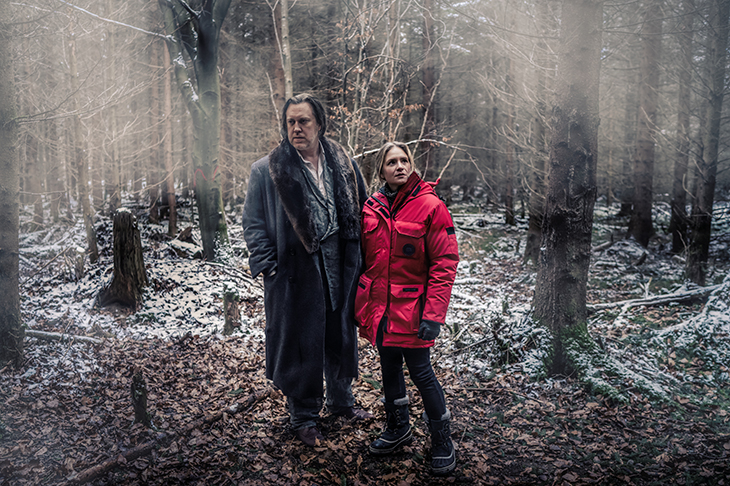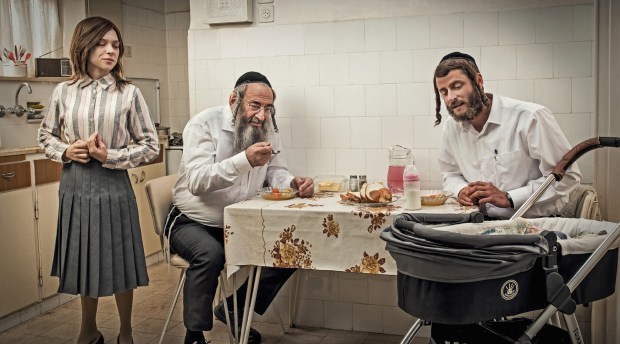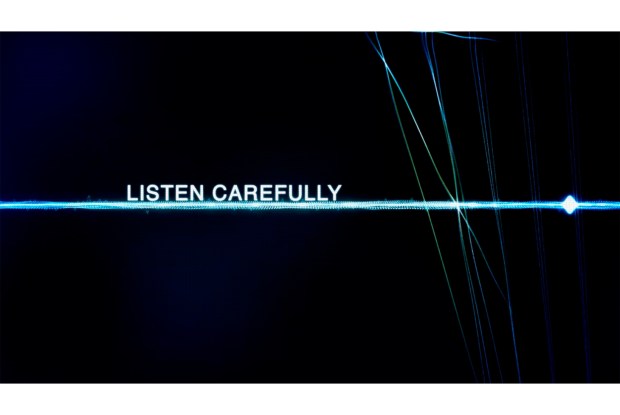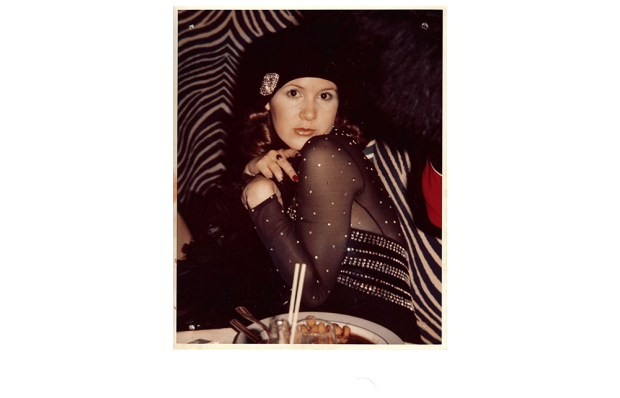True to the Andrew Roberts rule that the only bearable series on TV these days are ones with subtitles, I’ve started watching Der Pass (Sky Atlantic). Not unlike The Bridge and The Tunnel, it starts with a dead body exactly straddling a border, thus requiring the intervention of detectives from two national jurisdictions. This time, it’s a shambolic male Austrian and a perky blonde German.
It’s fascinating to see what quirks foreign authors choose to give their detective characters. Ellie Stocker (Julia Jentsch), the German, is sunny and eager with special hunting and animal-gutting skills learned from her hunter dad; Gedeon Winter (Nicholas Ofczarek), the Austrian, looks and dresses like Oscar Wilde, has some sort of opiate addiction and appears to have a double life as a kind of Winston Wolfe from Pulp Fiction, cleaning up inconvenient bodies in the criminal underworld.
This random Hunnish quirkiness is all very promising, as is the picturesque yet sinister Alpine setting (though it’s a bugger to read the white subtitles whenever there’s a snow scene, as there quite often is). What I’m a bit concerned about, though, two episodes in, is that there appears to be some kind of serial killer on the loose and that he’s into dark pagan forest rituals, so far conjured up in the form of mutilated deer carcasses and fleeting glimpses of symbolic wolves.
While I’m certainly not averse to all that Wicker Man stuff, it can all too easily descend into confusing, unsatisfying drivel. This is what happened to Dublin Murders: it strung you along for eight episodes with its various intriguing, psychologically damaged characters and its convoluted plot, only to leave you at the end, dangling and frustrated with a conclusion that half asked you to believe that it was the Alder King (aka Goethe’s Erlkönig) whodunit.
Then again, the upside of sinister, black magic-drenched serial killers is that you can dread and loathe them without feeling you’re being treated to another homily about how evil middle-aged capitalists are. Also, they usually end up kidnapping some pretty girl whom you are very eager to see saved from the hideous ritual death the killer has planned for her. So I think I’ll keep watching.
Because of the lecturers’ strike, Girl has been home from university. The bad news is that I’m no longer in charge of the TV controls and must endure life-wasting pabulum like I’m a Celebrity. The good news is that I’ve been able to form a considered view of The Crown while barely having to watch it. Like a lot of her generation, Girl tends to consume her TV on bingewatch fastforward, enabling her to digest multiple seasons in a matter of hours. Creatives find this horribly demeaning: remember the shrieks of luvvie outrage when Netflix announced a new function whereby viewers could whizz through its products at one and a half times normal speed? But I’m afraid that’s the way things are going in our accelerated culture and it does mean you cover a lot more ground.
The Crown, I think, lends itself perfectly to this treatment. Every episode feels about 20 minutes too long because so much of it involves stiff, posh people standing around stiffly in posh (and excruciatingly lavishly realised) surroundings, with plotlines that you sort of, kind of, know because the characters are very familiar.
And yet, though it feels simultaneously worthy and wrong (because of all the liberties scriptwriter Peter Morgan has taken with real people’s lives), it’s one of those things as a critic you really need to have an opinion on. Enter Girl with her magical fast-forward button and her gift for précis.
We got through four episodes in about an hour, which is just how I like it: the Aberfan one, which no way could I bear to watch in full because who wants to see children being killed by a slagheap; the one where Prince Philip’s mum, the saintly Princess Alice, wins over the Guardian journalist with her extraordinary back story; the one where Prince Charles gets taught Welsh by the Welsh Nationalist; the one where Princess Margaret saves the Special Relationship by reciting dirty limericks to Lyndon Johnson.
‘So the Labour government are anti the royal family and don’t want to give them any more money,’ explains Girl, giving us two or three minutes of Harold Wilson in cabinet discussions. ‘But then everything turns out OK because this chain-smoking nun who everyone thinks is an embarrassment is in fact a saint and the Guardian loves her,’ Girl continues, zooming to the relevant nun scenes.
This gives more than enough time to admire and deplore Morgan’s manipulation of his material — do we really think it was a Guardian interview that saved the monarchy? — and also to judge the casting and performances. The new Princess Anne is perfect, and Helena Bonham Carter is an entertaining Princess Margaret. But Olivia Colman (unusually for such a fine actress) is a woeful disappointment as Her Maj, overplaying the grim stolidity, largely missing the sensitivity, intelligence, subtle wit and heroic dedication.
Got something to add? Join the discussion and comment below.
Get 10 issues for just $10
Subscribe to The Spectator Australia today for the next 10 magazine issues, plus full online access, for just $10.
You might disagree with half of it, but you’ll enjoy reading all of it. Try your first month for free, then just $2 a week for the remainder of your first year.















Comments
Don't miss out
Join the conversation with other Spectator Australia readers. Subscribe to leave a comment.
SUBSCRIBEAlready a subscriber? Log in